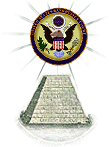New! Sightings of ACPOC Syndrome: 8 Firms Hiding Fraud From Court And the client who directed counsel to disclose the fraud by opposing counsel suffers financial retribution for daring to upset the golden goose. Abandonment of the Client for the Protection of Opposing Counsel The "official rules" which govern the conduct of lawyers have been written to protect lawyers from civil and criminal consequences. These rules are supplemented by a culture among lawyers to protect their own. This ingrained impulse to protect each other is so strong that a lawyer will go to great extremes to protect his opposing counsel, even to the extent of abandoning his own client.
The American Bar Association (ABA) has long struggled with the challenge of justifiying and maintaining the self-regulatory and self-policing nature of the legal profession. Lawyers, and particularly large law firms, greatly benefit by having control over the review and "enforcement" of complaints against the members of their profession. Lawyers intentionally designed the rules to enhance their own profitability, remove risk, restrict competition, grow their profession, and escape regulation which might hinder the operational status quo of their industry. The self policing nature of the law industry has the unfortunate by-product of shielding lawyers from criminal investigation and prosecution with respect to the same criminal acts for which non lawyer individuals have been fined and incarcerated. Even with the liberal "rules" governing the legal industry, lawyers will go to shocking extremes to protect their brethren who are so reckless as get caught in acts of misconduct and crime. The ABA has long known about the tendency of lawyers to protect each other, including a tendency to refuse to bring suits against their brethren: "Unfortunately, there appears to be a widespread feeling among laymen that it is difficult, if not impossible, to obtain justice when they have claims against members of the Bar because other lawyers will not accept employment to proceed against them. The honor of the profession, whose members proudly style themselves officers of the court, must surely be sullied if its members bind themselves by custom to refrain from enforcing just claims of laymen against lawyers." ABA Opinion 144 (1935). Consequently, the ABA established a rule which forbids a lawyer to refuse to represent a client on a matter if doing so would pit him against another lawyer: EC 2-28
The personal preference of a lawyer to avoid adversary alignment against judges, other lawyers, public officials or influential members of the community does not justify rejection of tendered employment. When A Lawyer's Self Interest Can Trump His Oath To Zealously Represent His Client...
A lawyer is in business to make money. Lawyers face client matters for which a zealous representation would bring negative consequences to opposing counsel. For example, if opposing counsel tells a lie in court (fraud upon a court is a crime) or destroys or hides documents during discovery (spoliation is a crime) such lawyer has a duty to report opposing counsel to the authorities so that his client is not harmed by the fraudulent conduct of opposing counsel. In such a circumstance, the lawyer must report opposing counsel in order to protect his client, and under his oath to the courts. However, the real world is far different from the hypothetical utopian world consisting solely of honest lawyers with entegrity. There are "crooked" people in every profession. We know there are crooked politicians, cops, and CEOs. Why aren't we surprised that contrasted with every other industry, large law firms have escaped criminal prosecution? Does anyone believe that becoming a lawyer completely removes the dark side of the human element? Does anyone believe that the pressures of keeping up with the Jonses affects every other profession but law? The one true answer is that we don't see large law firms prosecuted because lawyers protect each other. The real world profit and career motives of our all too human lawyers result in the emergence of ACPOC Syndrome in matters where lawyers commit misconduct. What happens when a lawyer witnesses misconduct, or crime, on the part of opposing counsel? The easy way out for the lawyer is to fail to inform his client, and the authorities, of the misconduct or crimes. This would be an instance of constructive ACPOC, and is often undetected. If the client becomes aware of the misconduct/crime and demands to his lawyer that such acts be brought before the authorities, an acute case of ACPOC Syndrome may result where the lawyer seeks authority from the court to withdraw as counsel. Such an acute form of ACPOC Syndrome is the epitome of the failure of attorney self-regulation and self-policing mechanisms, and may be further exacerbated by further inaction by all lawyers witnessing the conduct, the Court, and attorney employees of the Department Of Justice.
|
 CA Bar Complaint (13114)
CA Bar Complaint (13114) SONICblue - A Claims Trader's Fees Reimbursed for Alerting about Attorney Misconduct (10839)
SONICblue - A Claims Trader's Fees Reimbursed for Alerting about Attorney Misconduct (10839) Haas v. Romney 2nd Amended Complaint (10526)
Haas v. Romney 2nd Amended Complaint (10526) CA Bar **Revised** Complaint (9476)
CA Bar **Revised** Complaint (9476) SEC filings by client of PriceWaterhouseCoopers and HBD (9218)
SEC filings by client of PriceWaterhouseCoopers and HBD (9218) Doug Pick Esq. advice on Death Threats (9149)
Doug Pick Esq. advice on Death Threats (9149) Judicial Complaint against Judge Paul G. Hyman by Mary Alice Gwynn (8768)
Judicial Complaint against Judge Paul G. Hyman by Mary Alice Gwynn (8768) Shock! Peck's Lehman case colored by fraud? (8481)
Shock! Peck's Lehman case colored by fraud? (8481) SEC - so simple even a Caveman can see it! (8223)
SEC - so simple even a Caveman can see it! (8223) Bharara Gets Compaint On Judge Lippmann (8180)
Bharara Gets Compaint On Judge Lippmann (8180)

